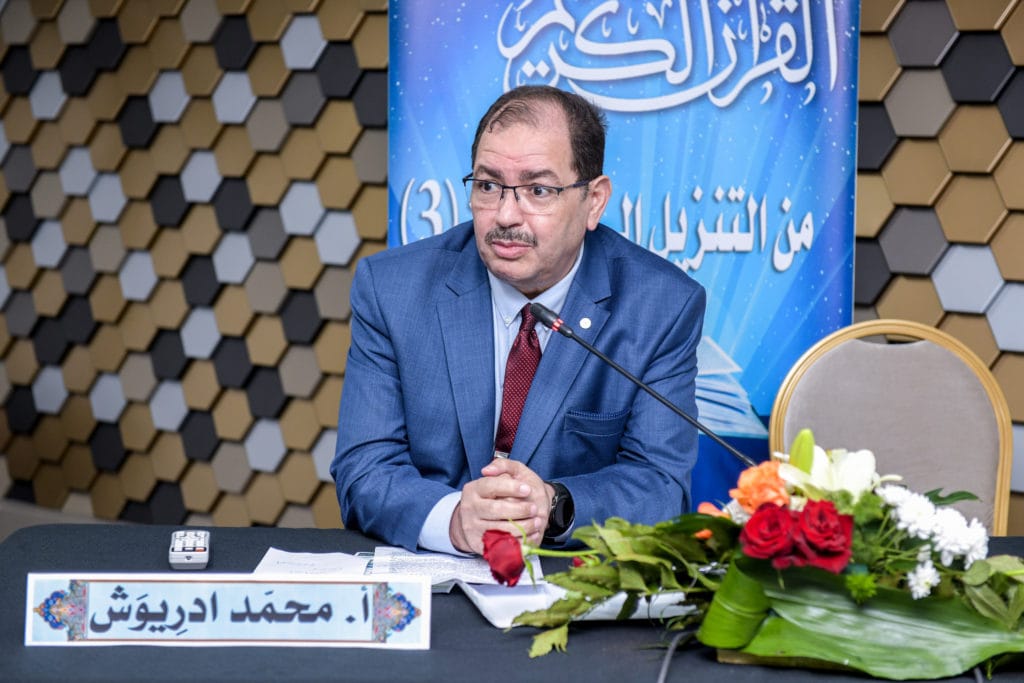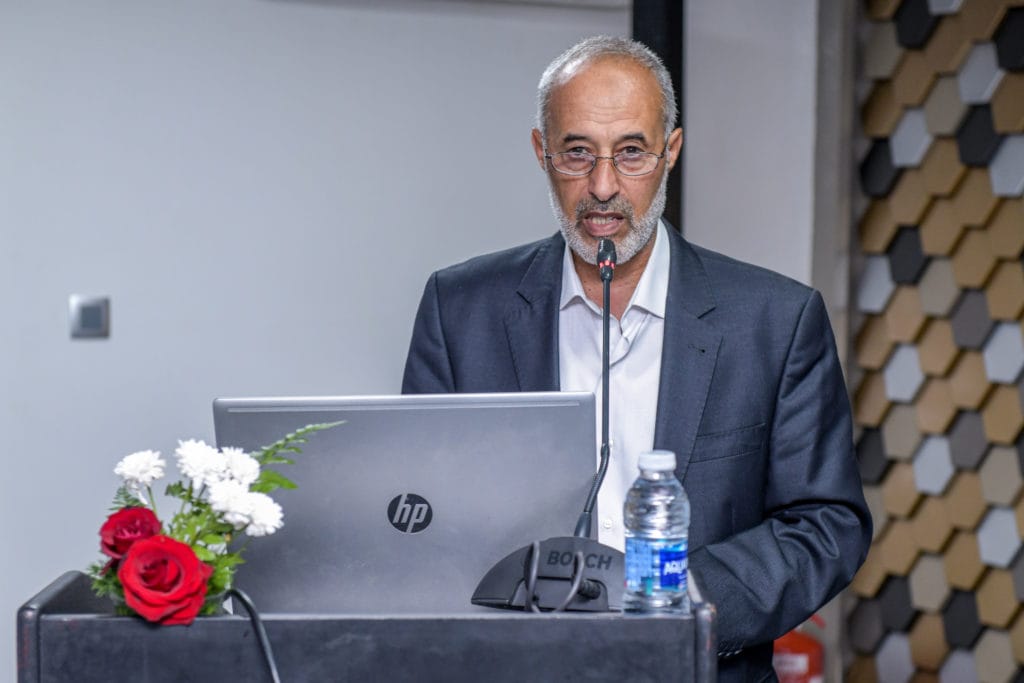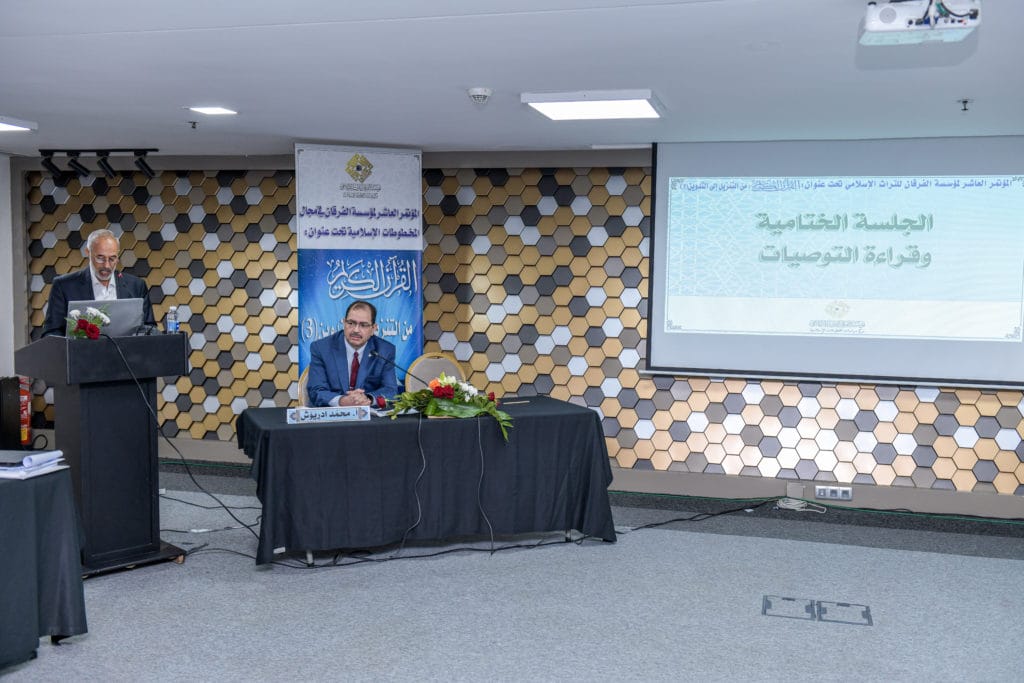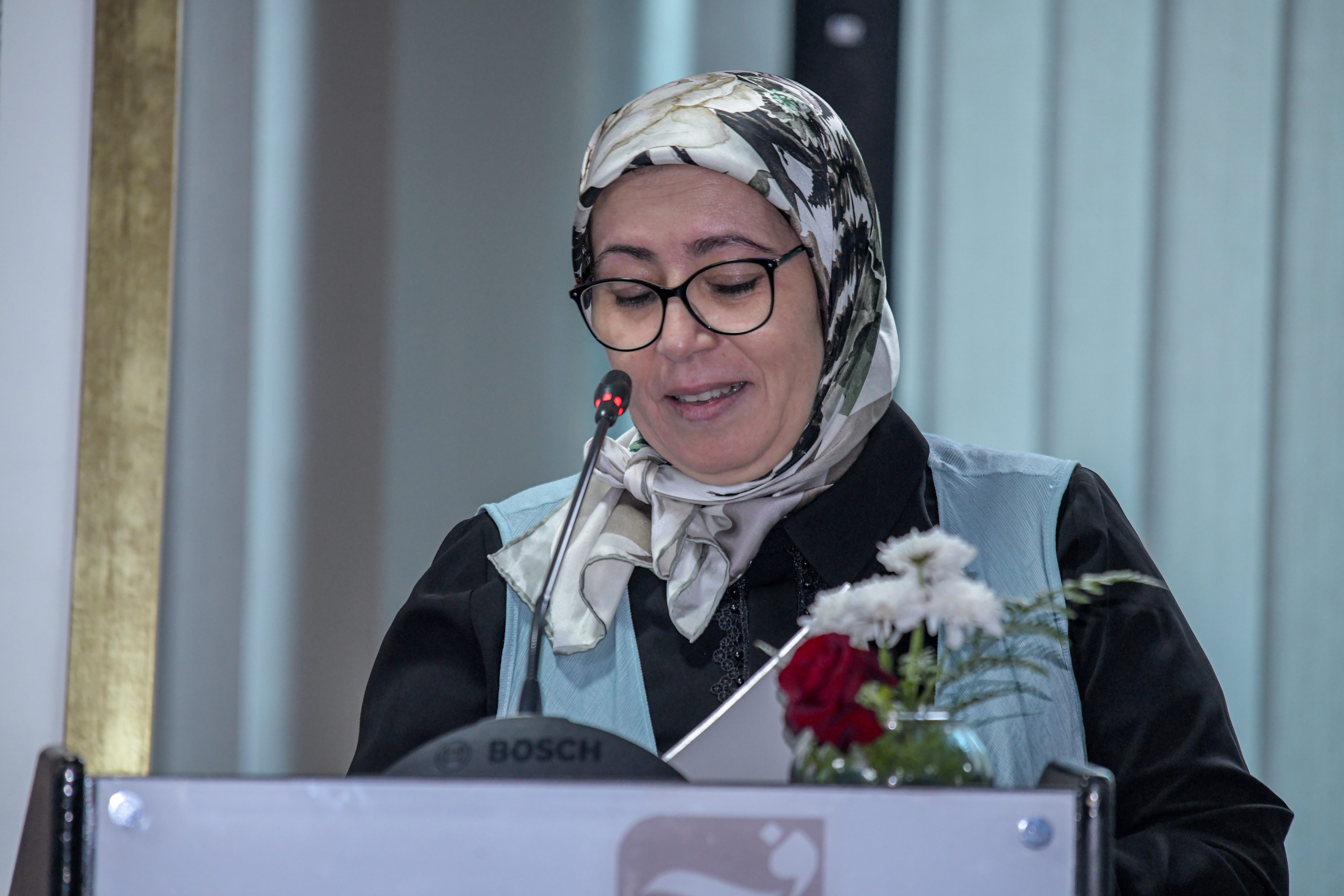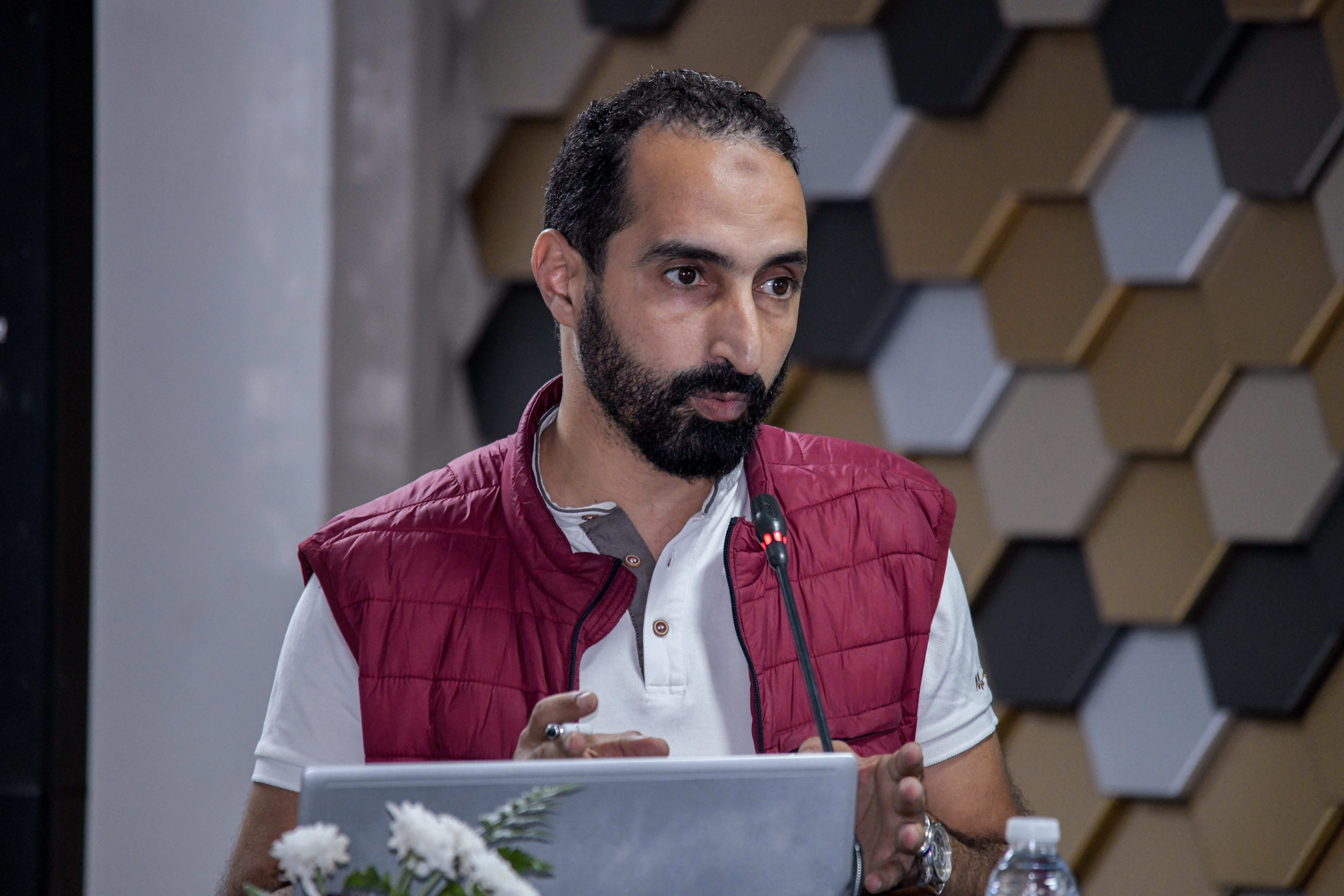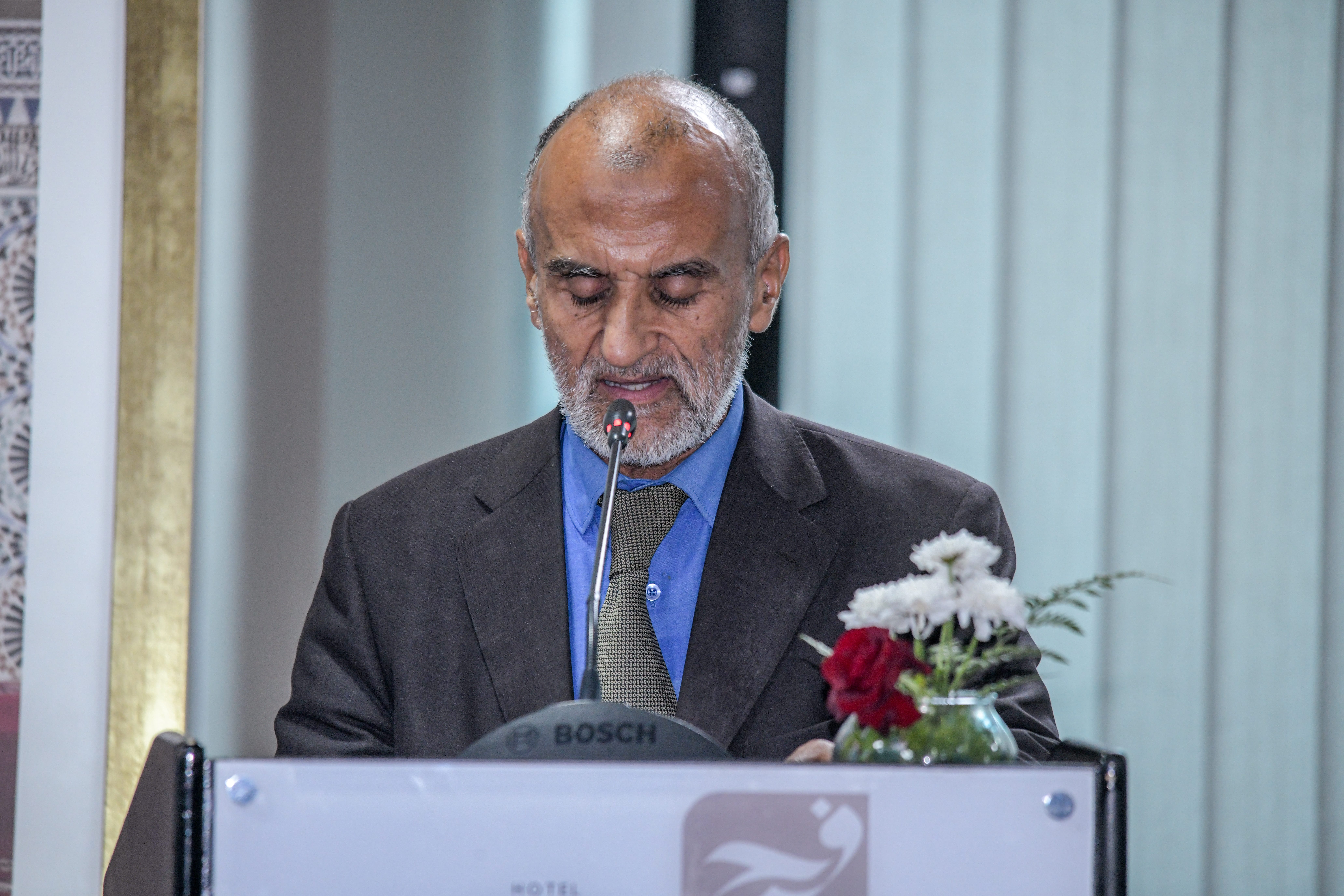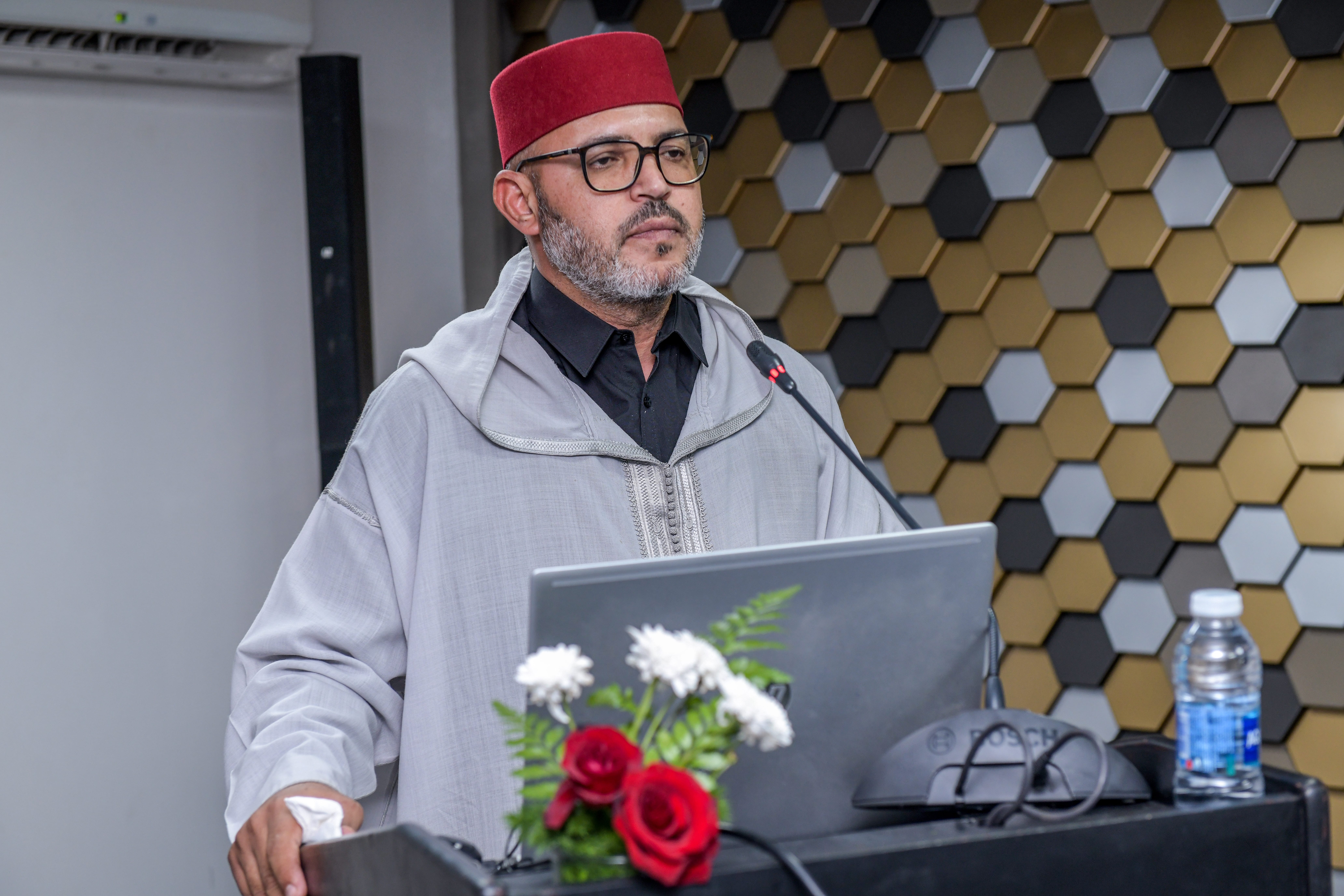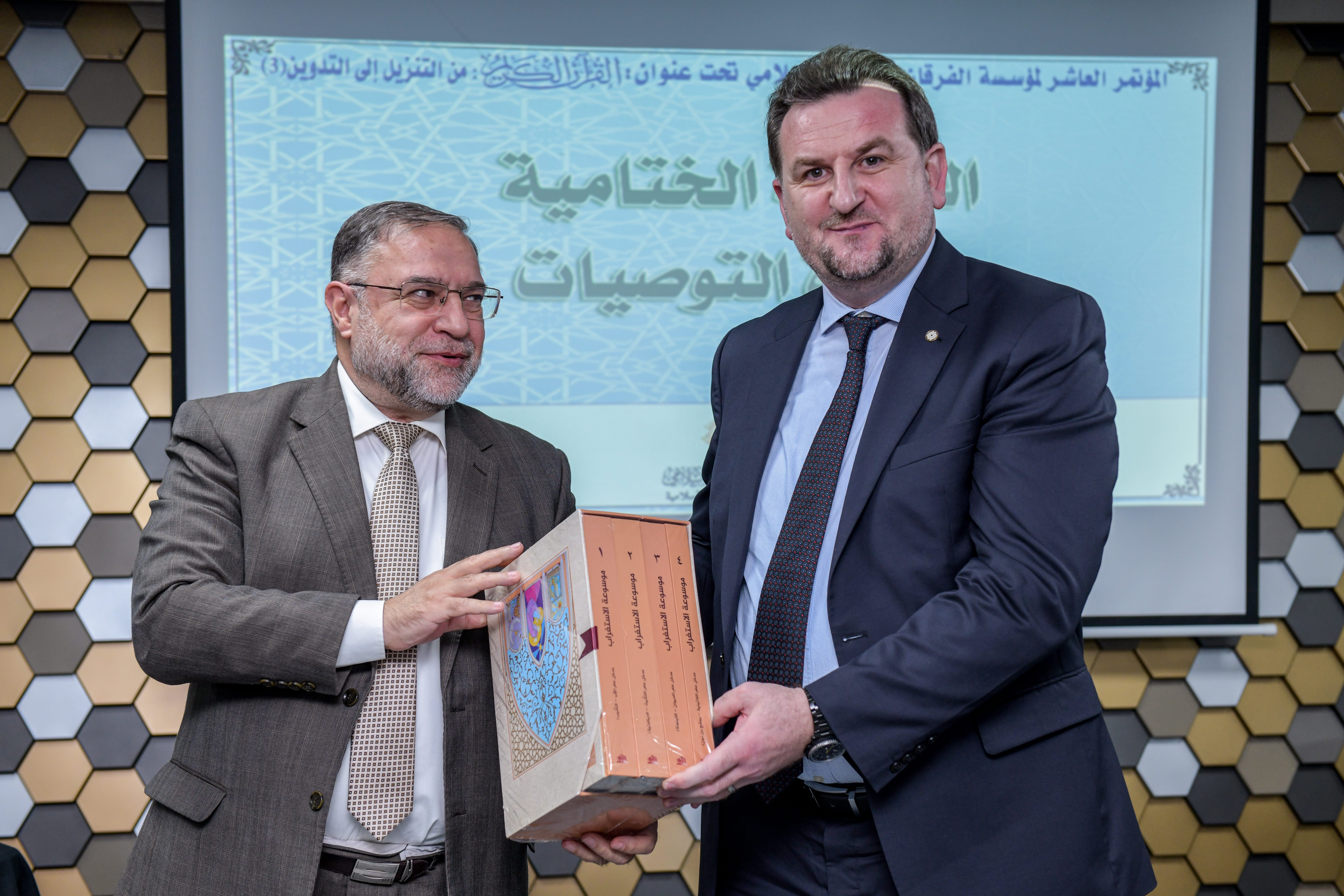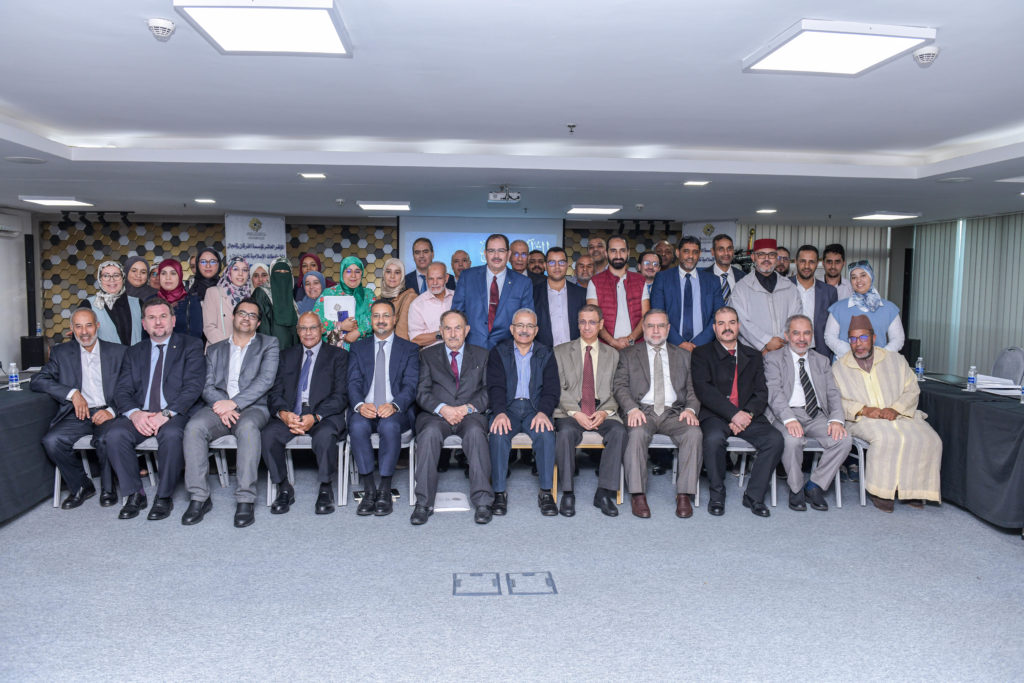Al-Furqān Islamic Heritage Foundation - The Centre for the Study of Islamic Manuscripts organised a scientific conference, titled “The Noble Qur’ān from Revelation to Compilation (3)”, on Monday, 7 November 2022 (12 Rabī‘ al-Awwal 1444AH), in Farah Hotel, Rabat. This third version was a continuation of the previous conferences on the topic, given its importance and need for further study and in-depth examination, especially as it relates to the Muslim nation’s primary source—the Noble Qur’ān.
The meeting started with Dr Moulay Hassan Al-Barhoumi reciting verses from the Glorious Qur’ān. Mr Sharaf Ahmad Zaki Yamani, Chairman of Al-Furqān Islamic Heritage Foundation delivered an opening welcome speech, expressing his gratitude and appreciation to the scholars and experts at Al-Furqān Islamic Heritage Foundation, such as the erudite Mohammad Salim al-Awwa, and the erudite Bashar Awwad Marouf. He also commended the work of the management of Al-Furqān Foundation, specifically its Managing Director, Mr Sali Shasivari, and the Head of Projects, Dr Mohammad Drioueche, for their effort in ensuring the success of training courses and conferences, and their selfless service to the projects that the Foundation wishes to execute. He also highlighted the importance of the topic relating to the transcription of the Noble Qur’ān, in terms of it being a defence of the primary source from the spurious claims that are being spun against it.
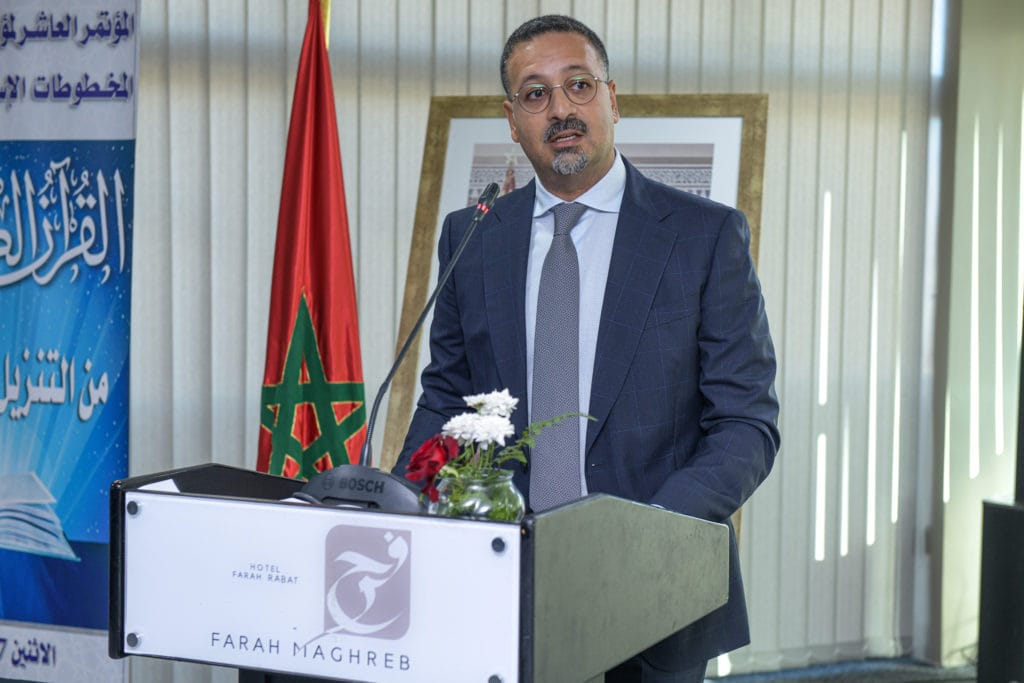
Dr Ahmed Chouqui Binebine followed with a beneficial speech. He thanked the Chairman of the Foundation, Mr Sharaf Ahmad Zaki Yamani, then focused on the topic’s importance in responding to the Orientalists, and quashed their spurious claims regarding the transcription of the Noble Qur’ān. He did not neglect to mention the attention granted by the Maghreb Muslims to the Noble Qur’ān; indeed, some leaders, such as Ibn Tumart, founder of the Almohad State, Abū al-Hasan al-Marīnī, Abū ‘Anān al- Marīnī, and Muḥammad b. Murtaḍā had transcribed the Muṣḥaf in their own hand.
He concluded his talk with some suggestions, including:
- Searching in places and holdings of Qur’ān copies, in public and private libraries, whether typical or otherwise.
- Undertaking critical studies of orientalist and Shia works on the Noble Qur’ān.
- Performing geographical and other studies of manuscripts on the Noble Qur’ān in world libraries.
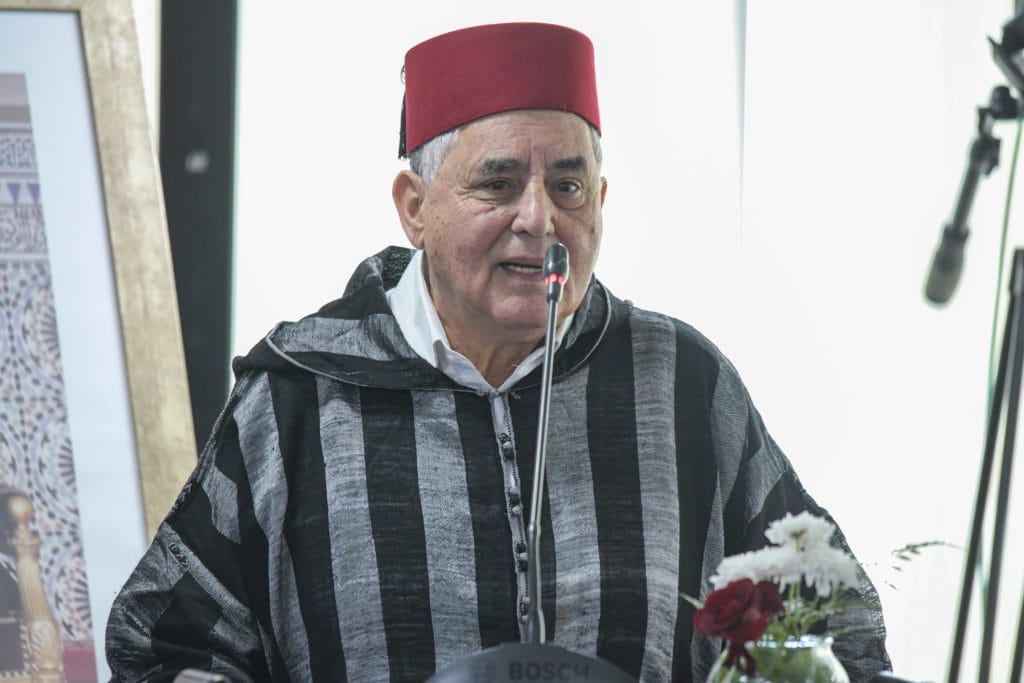
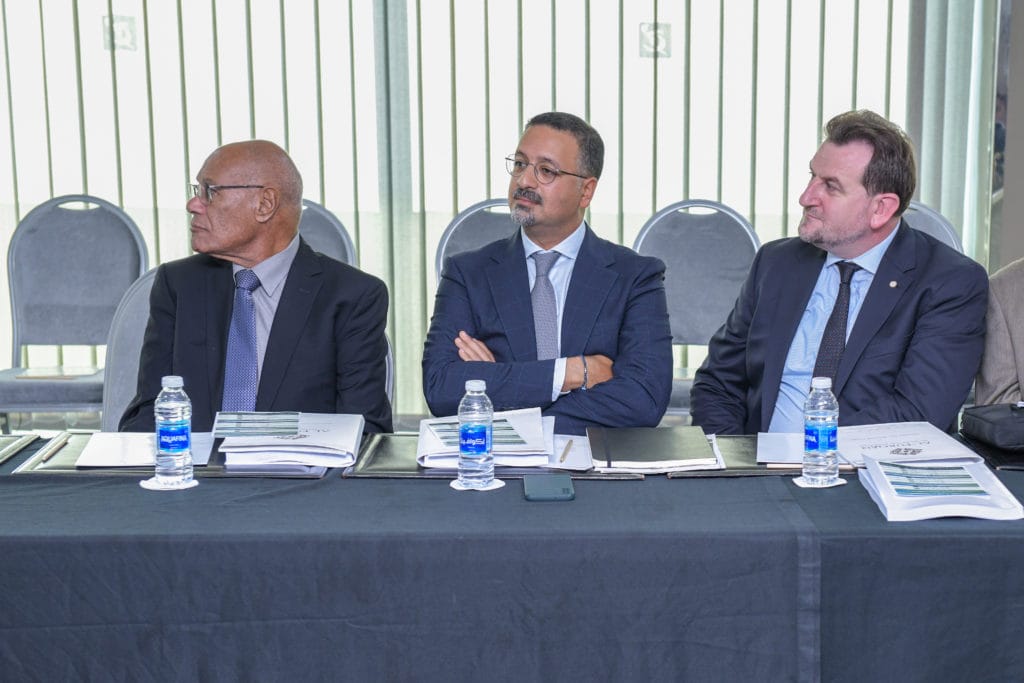
First session
In the first session—chaired by Dr Bashar Awwad Marouf, Dr Hasan Abdel Jalil al-Abadleh presented his paper titled “The most pristine proofs on the history of transcription of the Noble Qur’ān verses”. In the introduction, he spoke of the stages of revelation and establishment of the text of the Noble Qur’ān. He divided his paper into two large chapters; the first was dedicated to the stages of revelation of the Noble Qur’ān. In the second chapter, he examined the question of transcription of the Noble Qur’ān, where he pointed to the preservation of the Noble Qur’ān by Allāh, the Almighty. The researcher concluded t by mentioning the results of the study, and advising scholars to redouble their effort, in authoring a reference that follows up all the statements and traditions that speak about the history of the Noble Qur’ān.
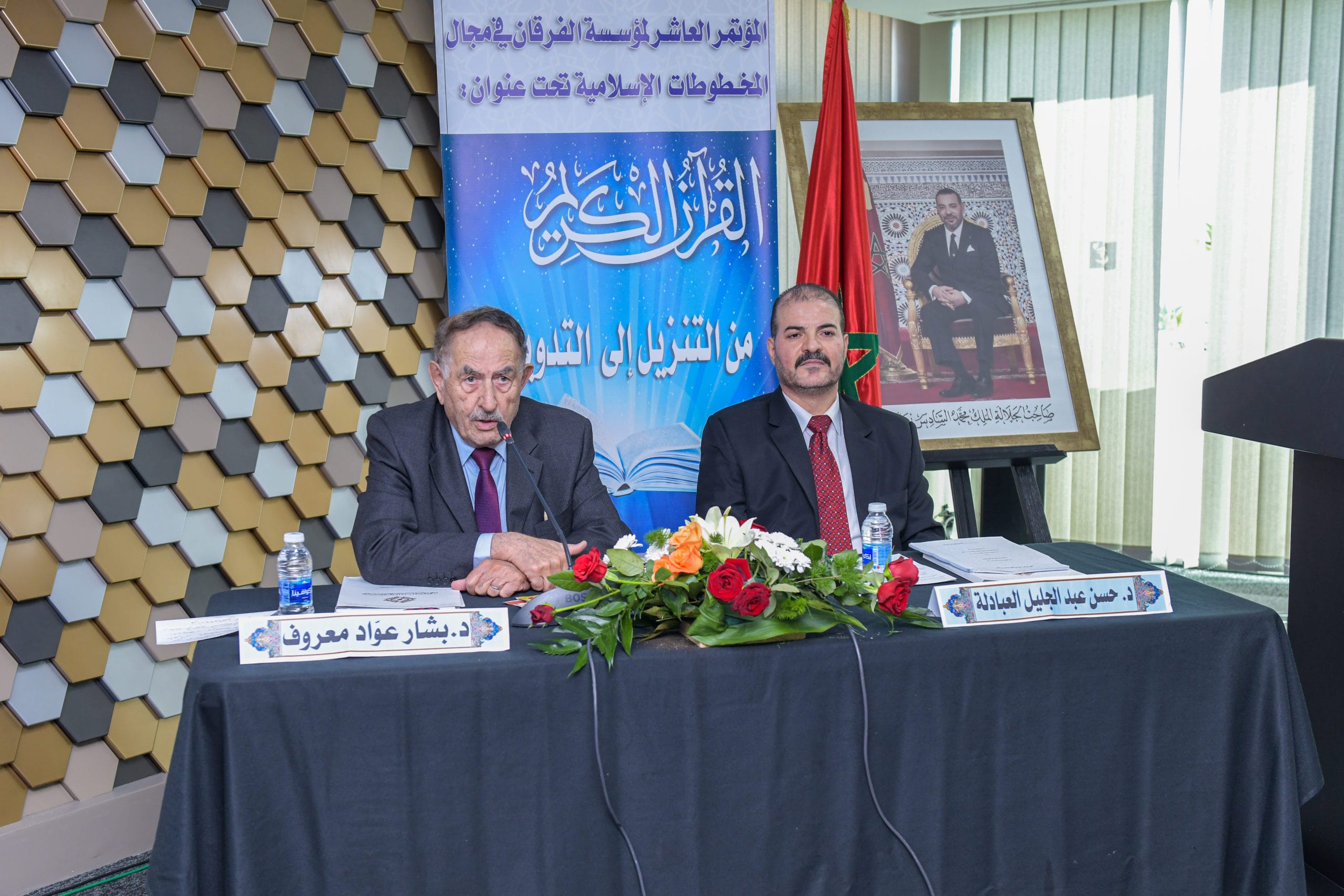
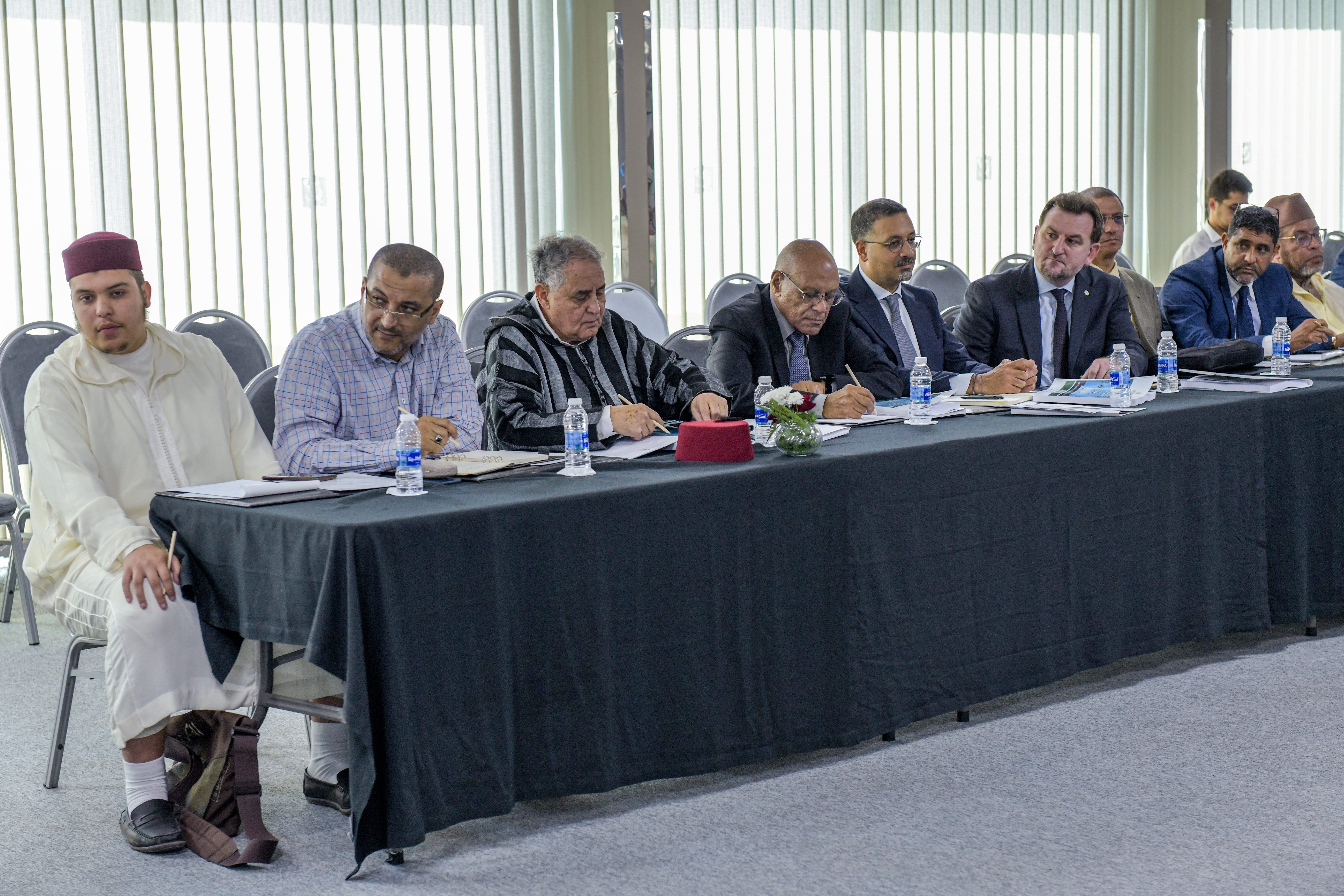
He was followed by Dr Said Hinchi, who read and summarised—on behalf of Dr Abdurrahman Spendari —the paper titled “The transport from Makkah to Madinah of parchments (sing. raqq) on which Qur’ān revealed in Makkah was written: A critical, analytical study”. He organised the paper into an introduction and areas of enquiry. The introduction focused on the importance of the topic, as it related to the preservation of the Noble Qur’ān, and had not been subject to deep and extensive authorship. The first area of enquiry was dedicated to “the difficulty of transporting written material due to primitive tools, and force majeure conditions”. He emphasised at the beginning that the question of writing the Qur’ān in the Makkan period was shrouded in ambiguity. It was not addressed among the issues in archaic Qur’ān sciences textbooks. Furthermore, we do not find significant attention granted to this by contemporary scholars, save for a few. Dr Spendari emphasised that the Noble Qur’ān had been written during the Makkan period.
In the second area of enquiry, he tackled the question of “we used to compile the Qur’ān on parchments”, meaning that they wrote it on primitive means. He explained the lexical meaning of the word, ruq‘ah, as elucidated by scholars of language and Prophetic tradition, and others. In this context, he presented narrations by al-Bayhaqī and others. The third area of enquiry related to “the transport of the parchments on which it was written and those who transported them”; he confirmed, based on the reports on the matter, that a number of Companions transported the parchments from Makkah to Madinah. Similarly, the books of biographies of the Noble Companions, may Allāh be pleased with them, are quite useful. In the fourth area of enquiry regarding “Rāfi‘ b. Mālik, the transporter of the Makkan Qur’ān”, where he establishes that Rāfi‘ b. Mālik had transported the Makkan Qur’ān revealed upon the Prophet, peace be upon him, during the first ten years of Islam. In the fifth area of enquiry he covered “transport of Qur’ān chapters (sing. sūrah) from Makkah to Madinah”. He mentioned that a number of Qur’ān chapters had been transported from Makkah to Madinah; although scholars have differed over who had undertaken their carriage, he mentioned their names. He concluded his paper by demonstrating that the statement made by some that the written Makkan Qur’ān was not transported due to the circumstances that prevailed at the time is incorrect. This is a response to orientalists and their supporters.
Following the two papers, the floor was opened for discussion.
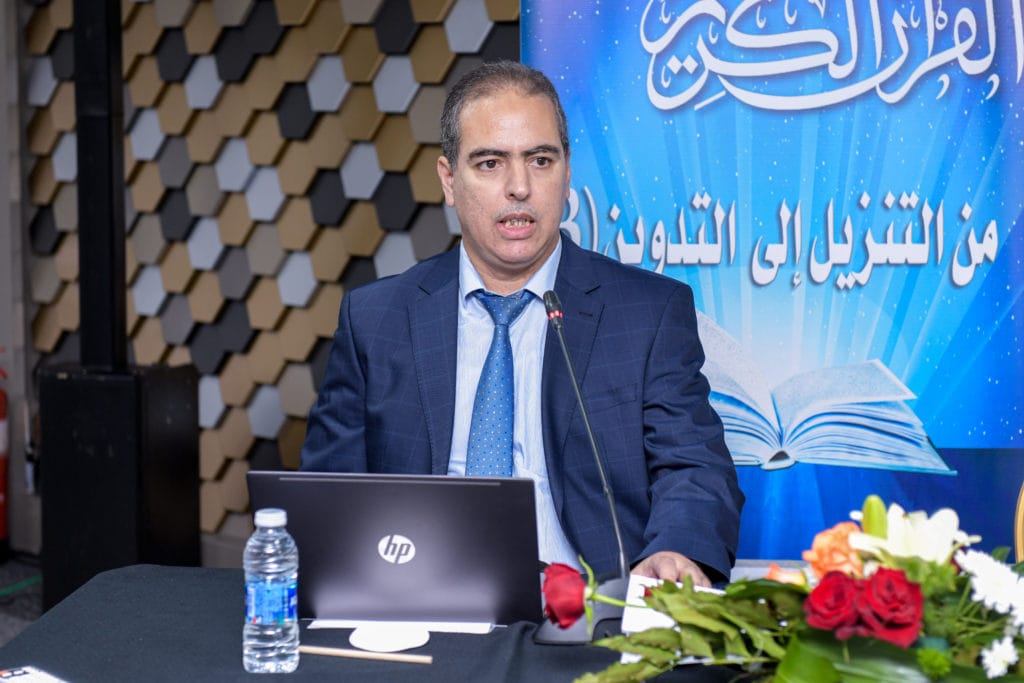
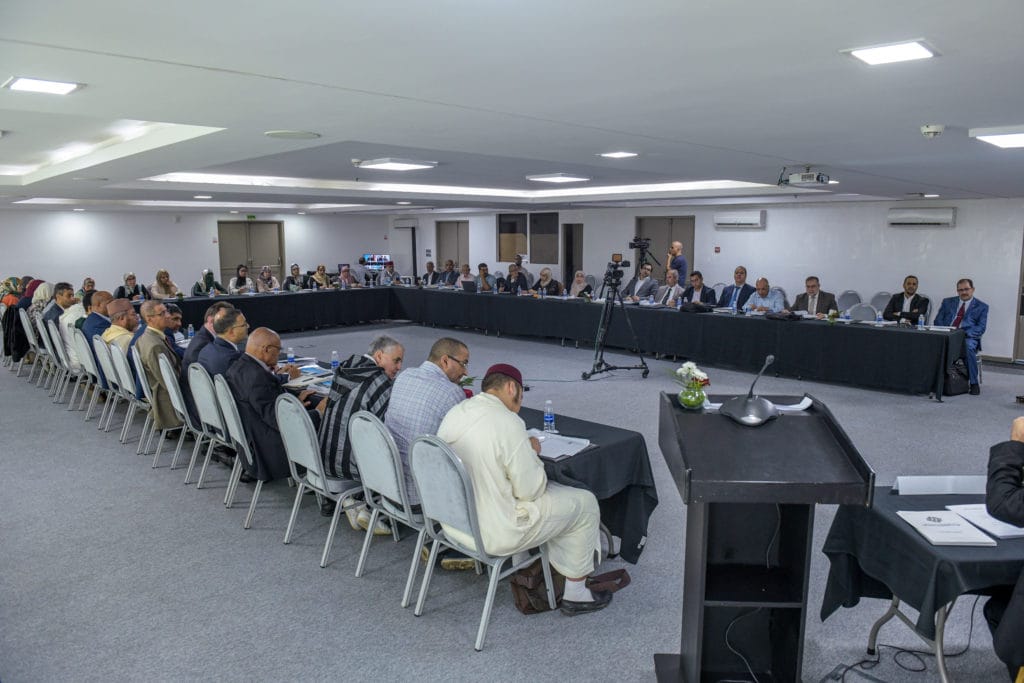
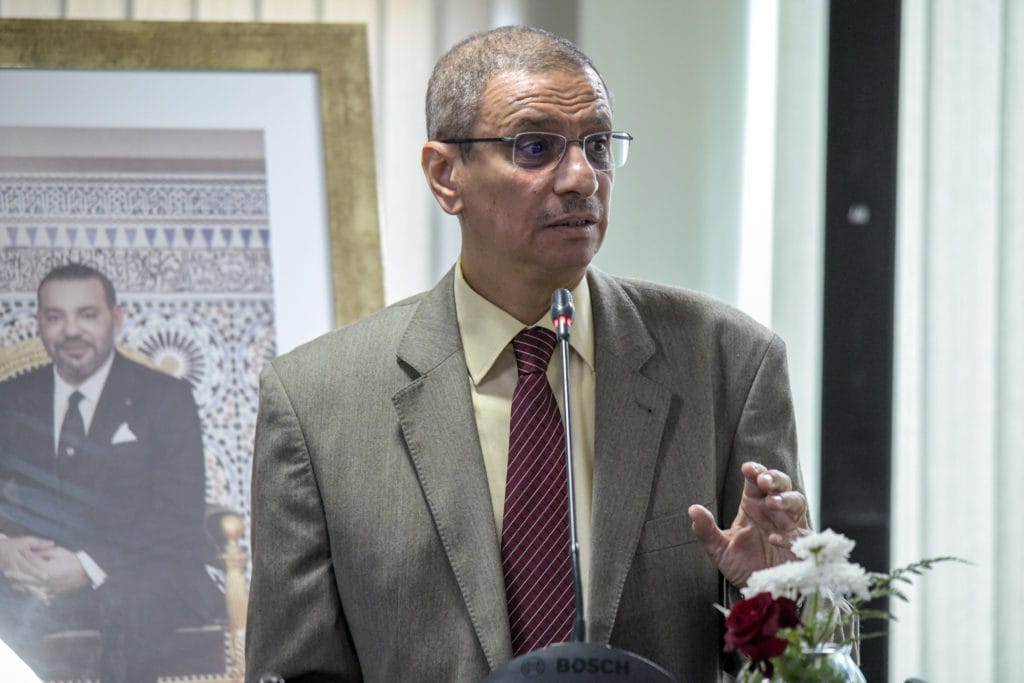
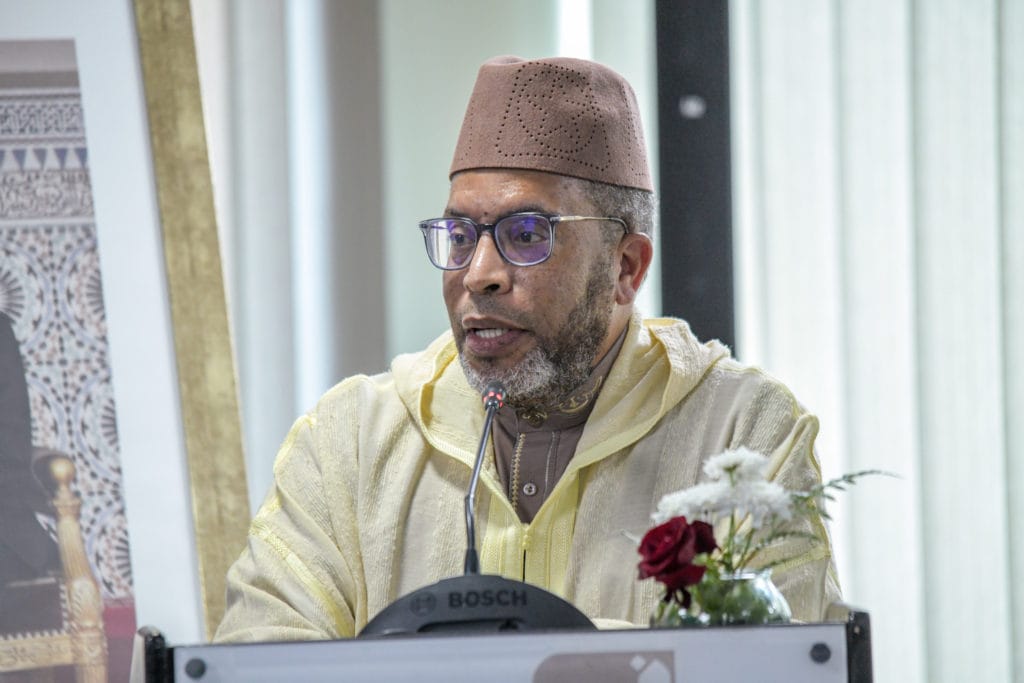
Second session
The second session held in the evening was chaired by Dr Mohammad Salim al-Awwa. Dr Ahmad Khalid Shukri presented his paper on “The order of revelation of Qur’ān chapters and verses between narration and creative reasoning”. In the introduction, he raised several questions: is the accepted standard in ordering the revelation of the Noble Qur’ān based on chapters or verses? What is a position regarding the narrations on the order of Revelation? What are the efforts of orientalists in this regard?
He divided his paper into three areas of enquiry. In the first, he addressed the order of the revelation of verses and not chapters. In it, he established that Qur’ān chapters were not revealed in full on a single occasion. The second area of enquiry focused on the narrations regarding order of revelation. The researcher found that reports regarding order of revelation were numerous, and were reported on the authority of the Companions (ṣaḥābah) and the Successors (tabi‘īn), and those after them.
He dedicated the third area of inquiry to discussing the order of revelation from the orientalist perspective. The researcher explained that the effort by orientalists was mostly based on their own reasoning and analysis, more so than dependence on narrations. The researcher concluded results, including: ordering the revelation based on chapters, whether from narrations or through reasoning is highly problematic, making this very difficult or impossible. Furthermore, there is no neutrality, and the matter includes a significant amount of vilification and abuse; anyone dealing with this topic needs to be very alert and exercise extreme care.
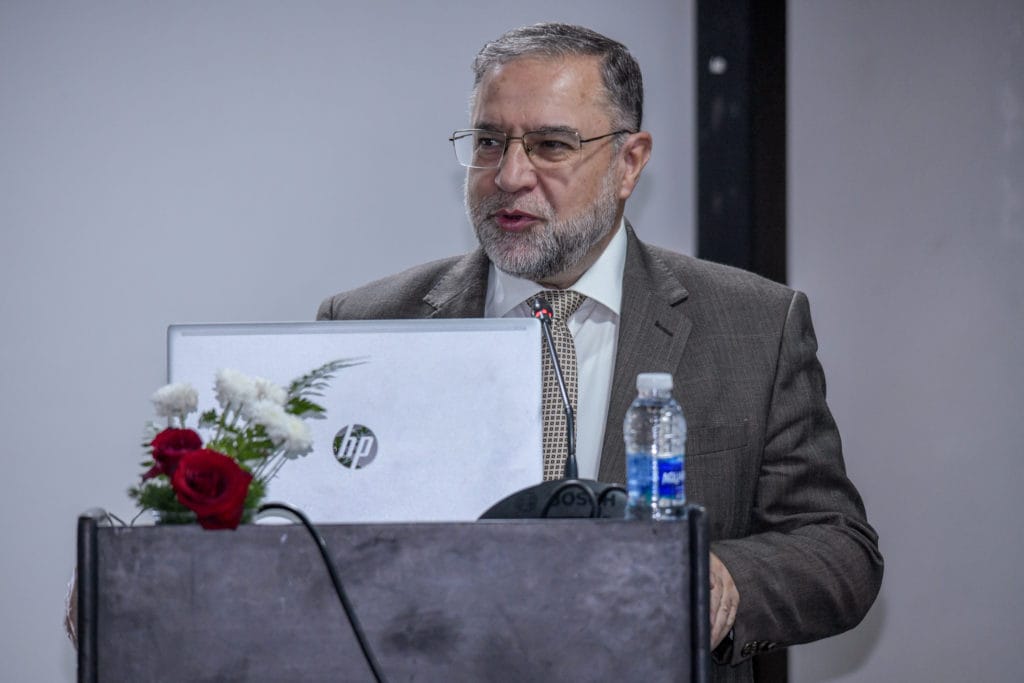
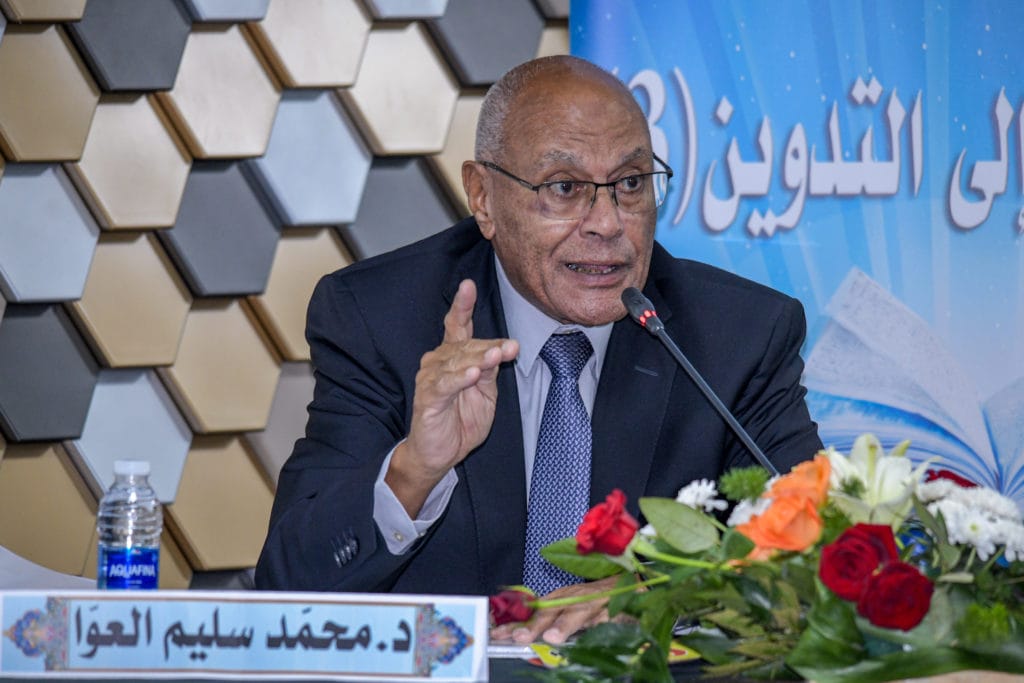
This was followed by the paper by Dr Abdallah Khatib on “The order of chapters in the Qur’ān codex (muṣḥaf) between Muslim scholars and orientalists: Presentation & criticism”. Dr Khatib’s paper was organised into an introduction and three areas of inquiry. He emphasised in the introduction that this is one of the key issues discussed by orientalists, where they claim that the source of the Qur’ān is not Divine. He pointed out that there are many orientalist theories on this. In his work, he adopted both inductive reasoning (istiqrā’) and analytical methodologies.
He dedicated the first area of inquiry to the order of chapters of the Noble Qur’ān, according to Muslim scholars. In the second, he presented the history of western critical analysis of the Noble Qur’ān through ordering the chapters by date of revelation. As for the third area of inquiry, he presented a critical study of the orientalists’ order of chapters of the Noble Qur’ān , refuting their claims.
He concluded his paper with a set of results, most importantly that the Muslim narrative on the collation and order of the ‘Uthmanī Qur’ān codex (muṣḥaf) can be depended upon from a scientific perspective. This was because the Muslim narrators subjected the collation and ordering of the Qur’ān to the highest levels of criticism. Moreover, the explanation of Ibn Mas‘ūd’s narration has attracted disagreement among scholars.
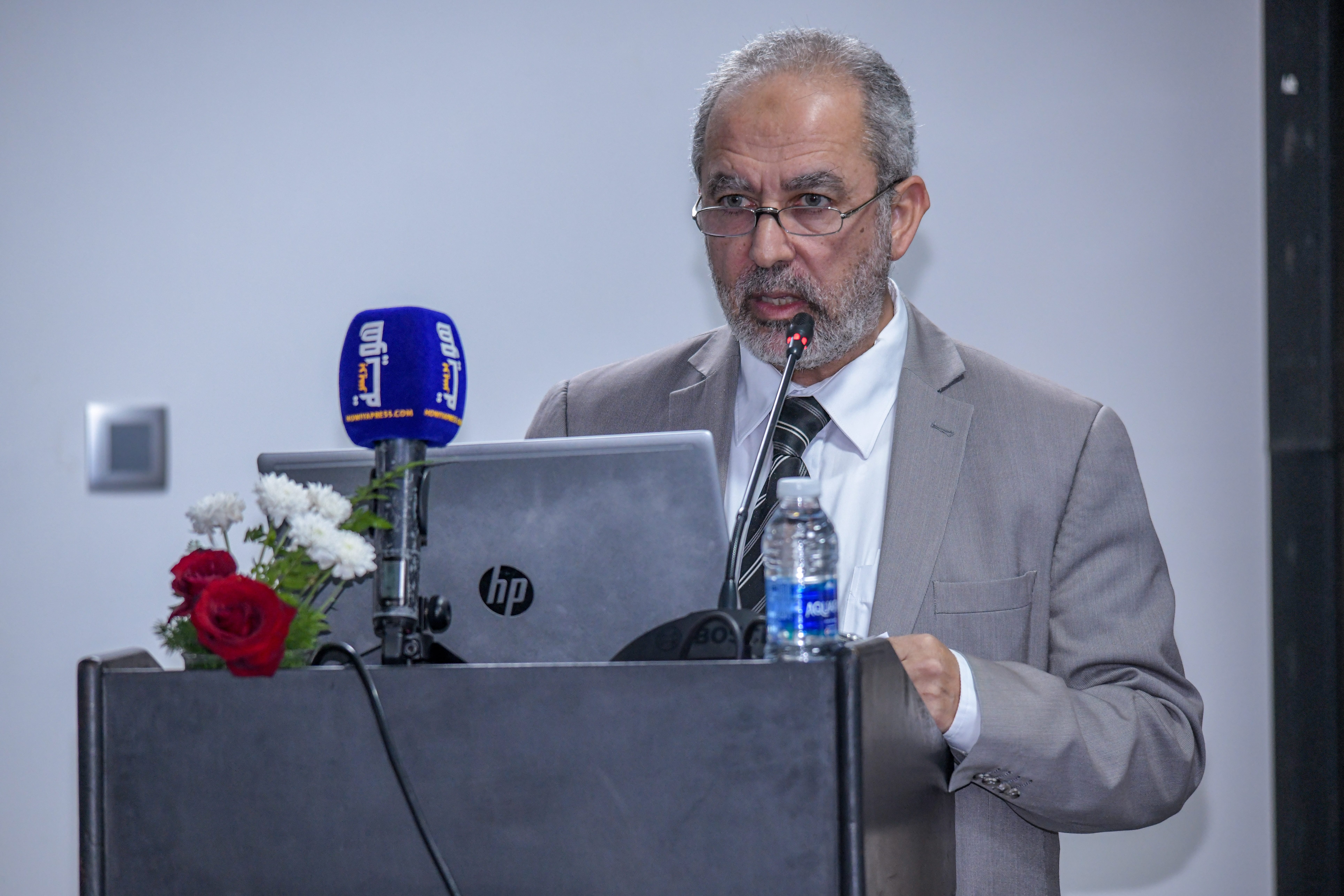
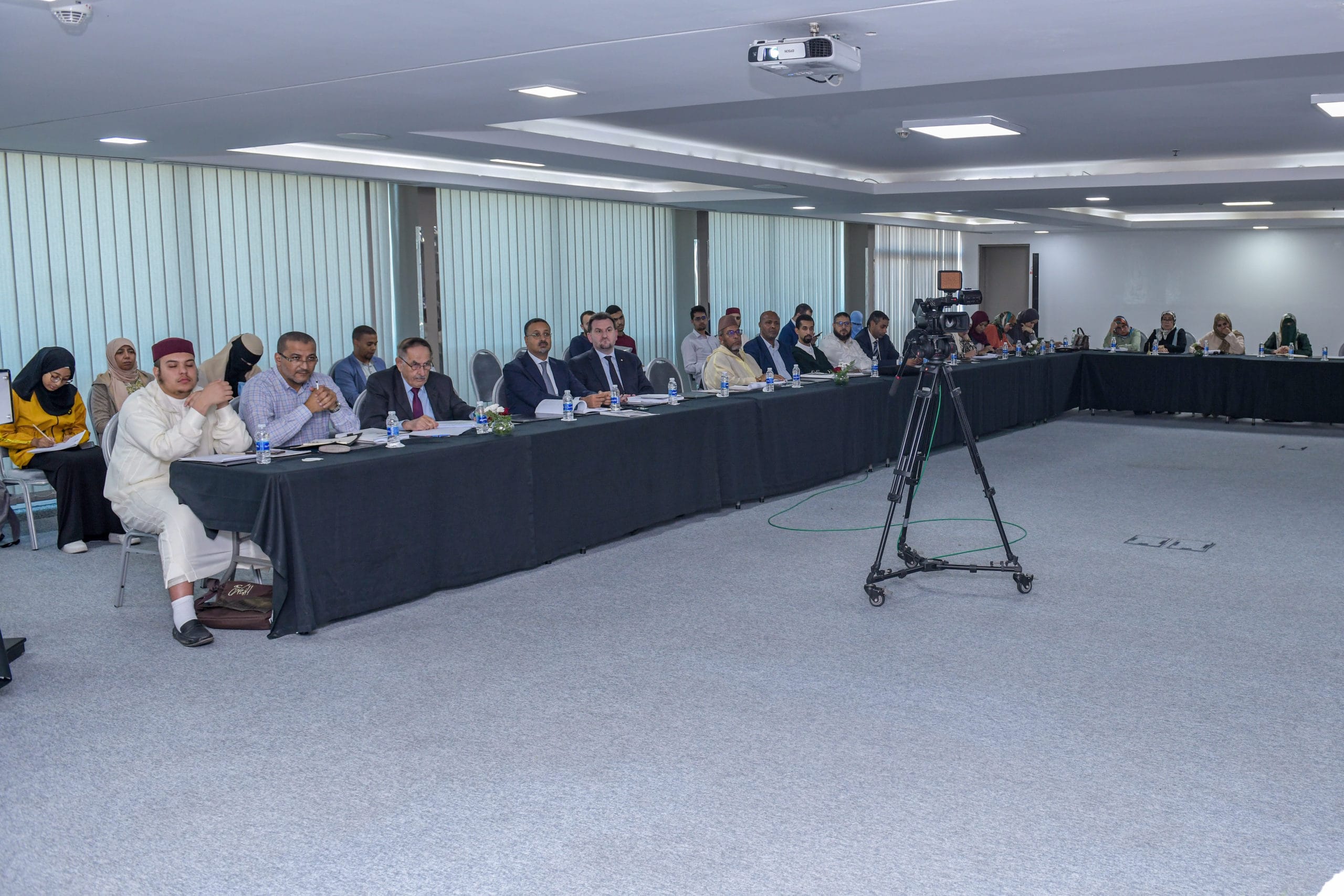
He was followed by Dr Adnan al-Harithi al-Sharif with the paper titled “Forms of verse (āyah) and chapter (sūrah) endings in early Qur’ān codices: a technical study”. The researcher explained the importance of the topic in his introduction, given it is related to Qur’ān orthography (rasm). He then spoke extensively on defining the meaning of the ending (fāsilah). He also presented the early forms of these endings, before these witnessed huge development in successive historical periods. In his paper, he tracked the phenomenon at its beginning referencing different historical sources.
He concluded the paper with results, including: the fact that the paper clarified that Qur’ān codices (sing. muṣḥaf) passed through many stages of development over historical periods until some morphological additions were made to early Qur’ān codices, particularly in verse and chapter endings.
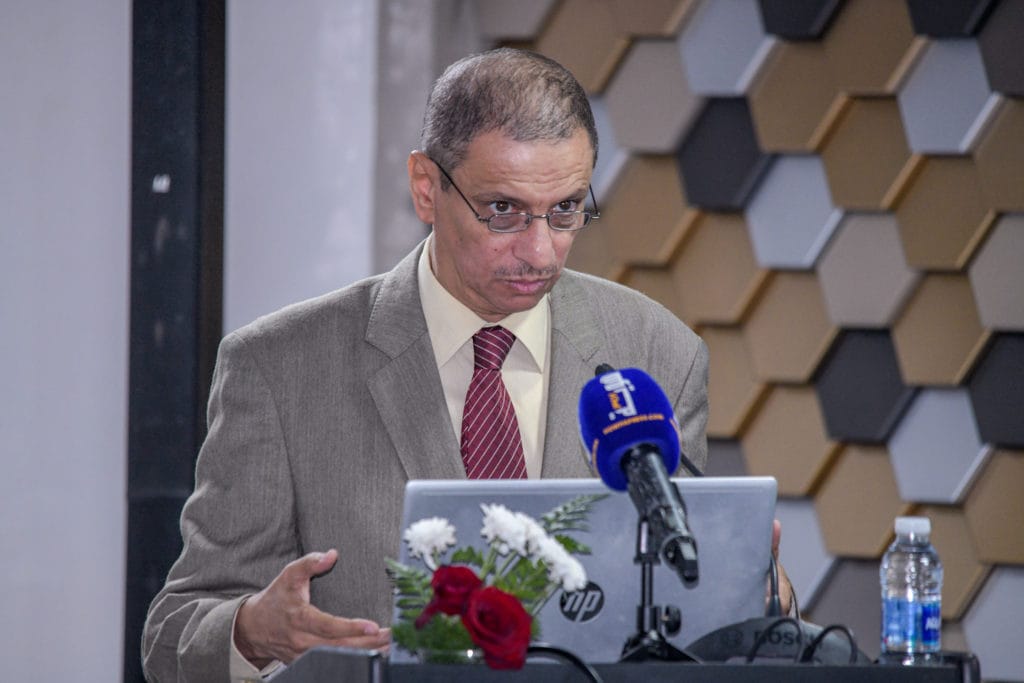
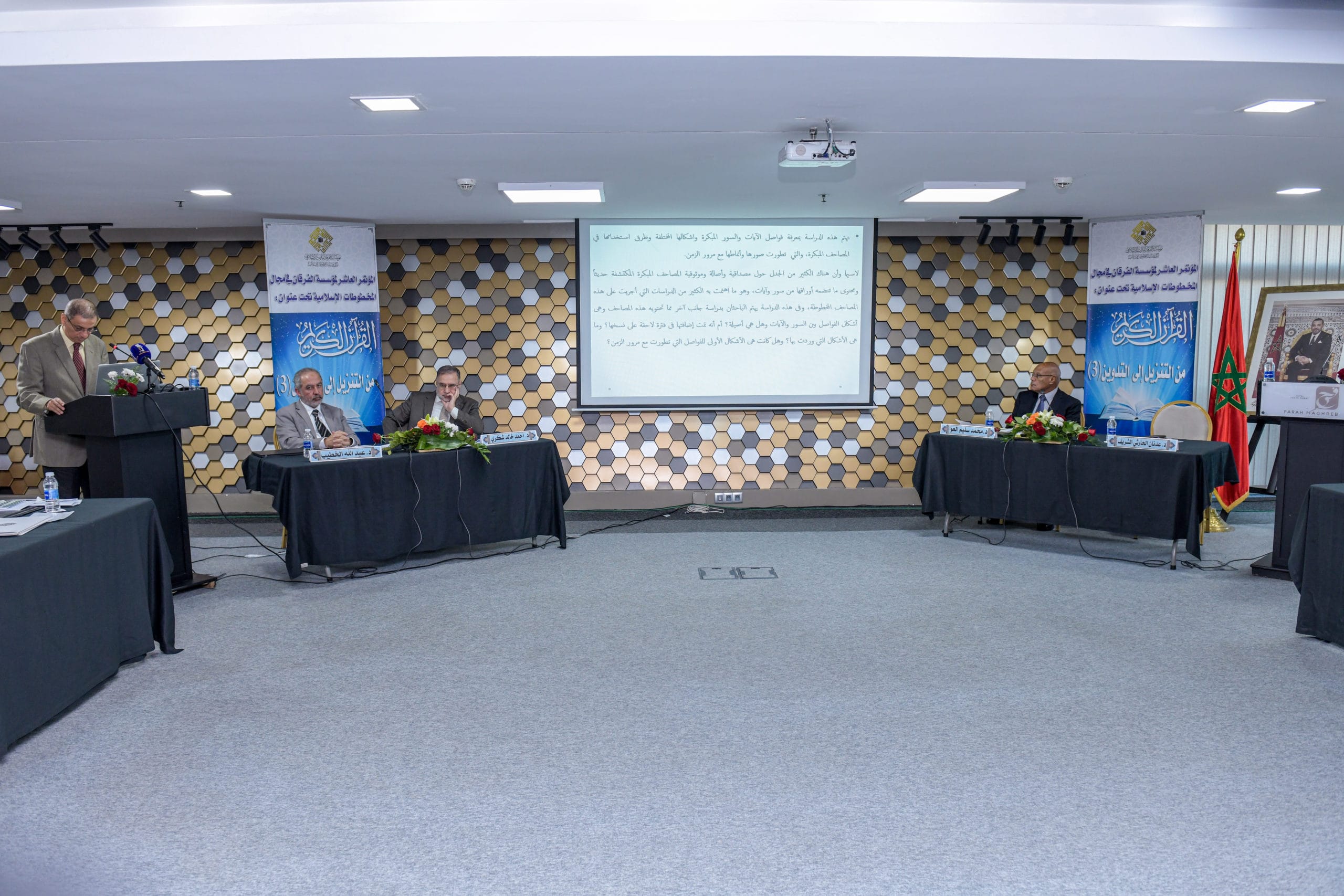
Third session
The session was chaired by Dr Abdallah al-Khatib, and opened with the paper by Ahmad Wissam Shakir titled “Scribe errors: reports relating to Ibn ‘Abbās’ contentions of errors by the scribes of ‘Uthmān’s Qur’ān codex in light of archaic Quranic manuscripts”. This paper undertook study and analysis of a set of narrations attributed to the Companion ‘Abd Allāh b. ‘Abbās (d. 68AH), found preserved in heritage texts, which contend that the writers of ‘Uthmān’s Qur’ān codex made mistakes in the orthography of a number of Quranic words.
The paper was concerned with highlighting these narrations from the original heritage sources, such as Sunnan Sa‘īd b. Manṣūr (d. 227AH) and Tafsīr Ibn Jarīr al-Ṭabarī (d. 310AH). The researcher concluded with key findings, including: it is established from this study that Ibn ‘Abbās used to read the Qur’ān following the canonical reading (qirā’ah) of Zayd b. Thābit, except for 18 letters he took from Ubayy’s reading.
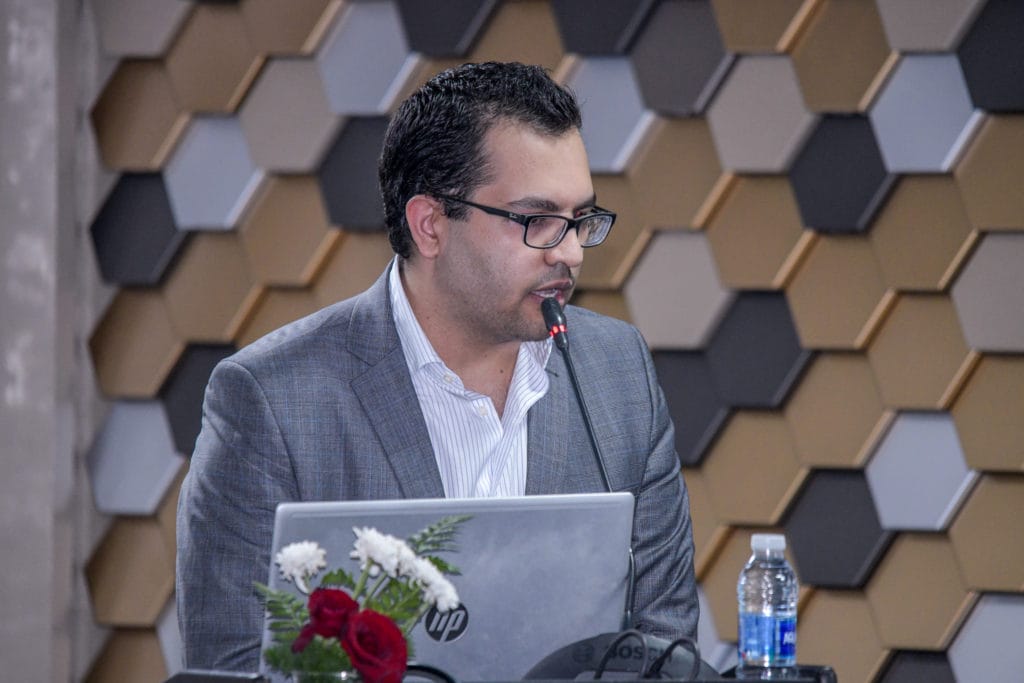
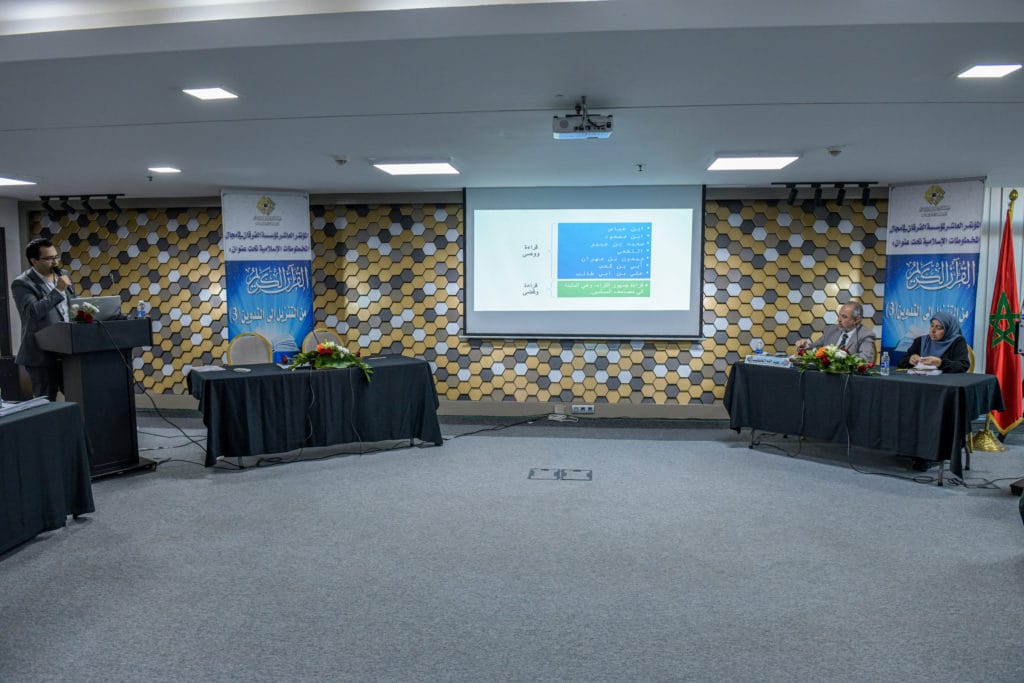
Subsequently, Dr Raghda Mohammad Adib Zaidan presented her paper on “Angelika Neufert’s orientalist postulations and the Qur’ān recitation (tartīl)”, which she divided into an introduction and four points or issues. In the introduction, she pointed out that orientalists studied the Noble Qur’ān as a book they claim was authored by The Prophete Muḥammad, peace be upon him, and then presented as God’s word. The researcher asserted that she will discuss a thesis by Angelika Neufert, the most prominent, contemporary western Quranic studies researcher. Neufert presented studies on the Qur’ān, its ritualism, and style of organisation. The researcher applied the methodology of historical analysis, and referring to a good set of Neufert’s writings—translated and original language texts.
The researcher considers that Angelika Neufert’s studies do not go beyond the frame of a project to gather the Qur’ān in an encyclopaedia. Neufert considers the Qur’ān as a literary text that used the Holy Bible, and rewrote some of its spaces to formulate the new religious identity for the nation. Dr Raghda also addressed the matter of Qur’ān recitation and its relationship with the Qur’ān’s ordering.
The researcher proposed that studies of the Qur’ān require a new research method. She criticised some universities, researchers, and students, who wanted to develop and modernise, but sought out western methodologies used in their social sciences, humanities and historical studies. She concluded her paper that Angelika Neufert’s views and postulations do not go beyond the orientalist theses that view the Qur’ān as a book of human origin, and not revelation from Allāh.
Subsequently, the floor was opened for discussion.
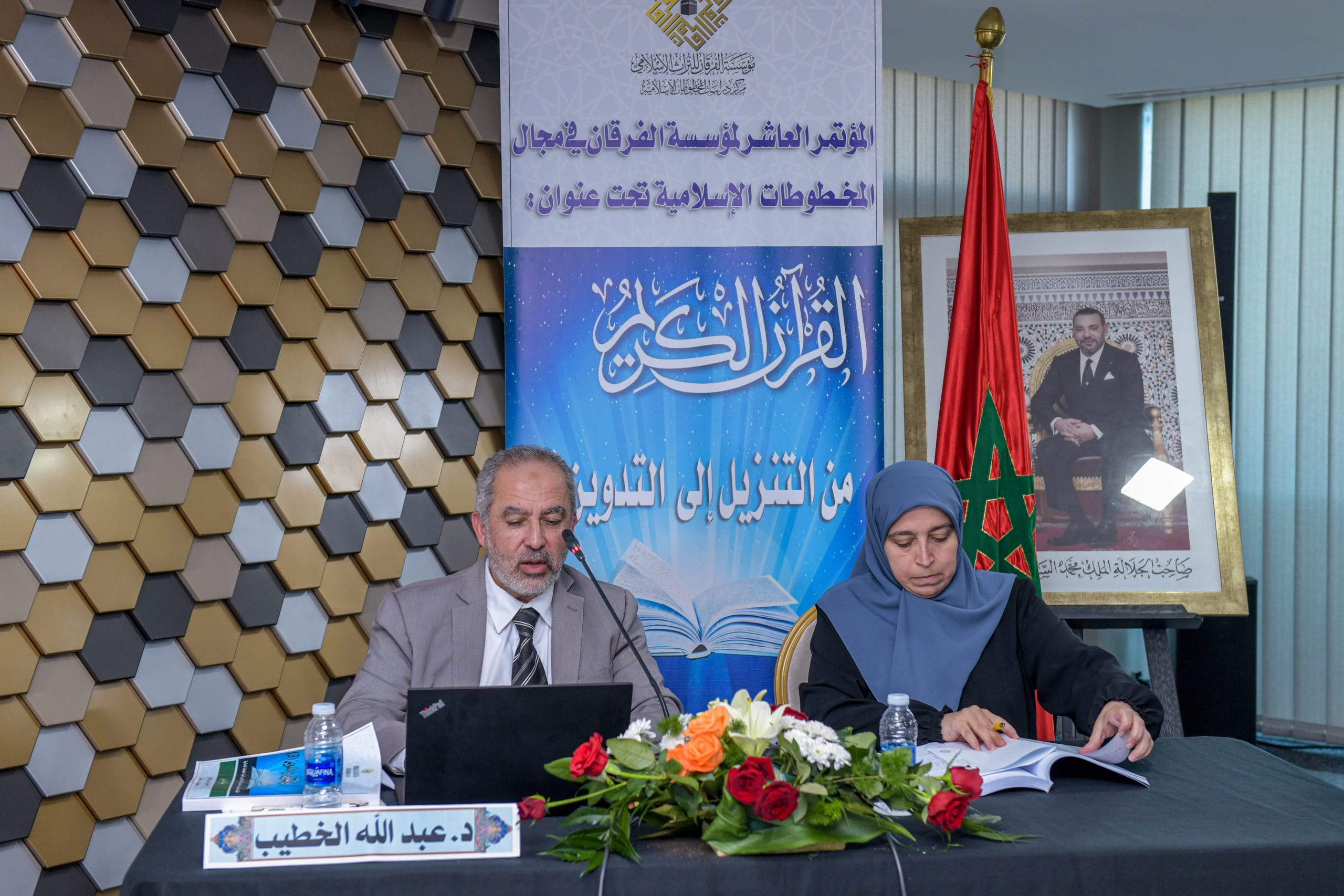
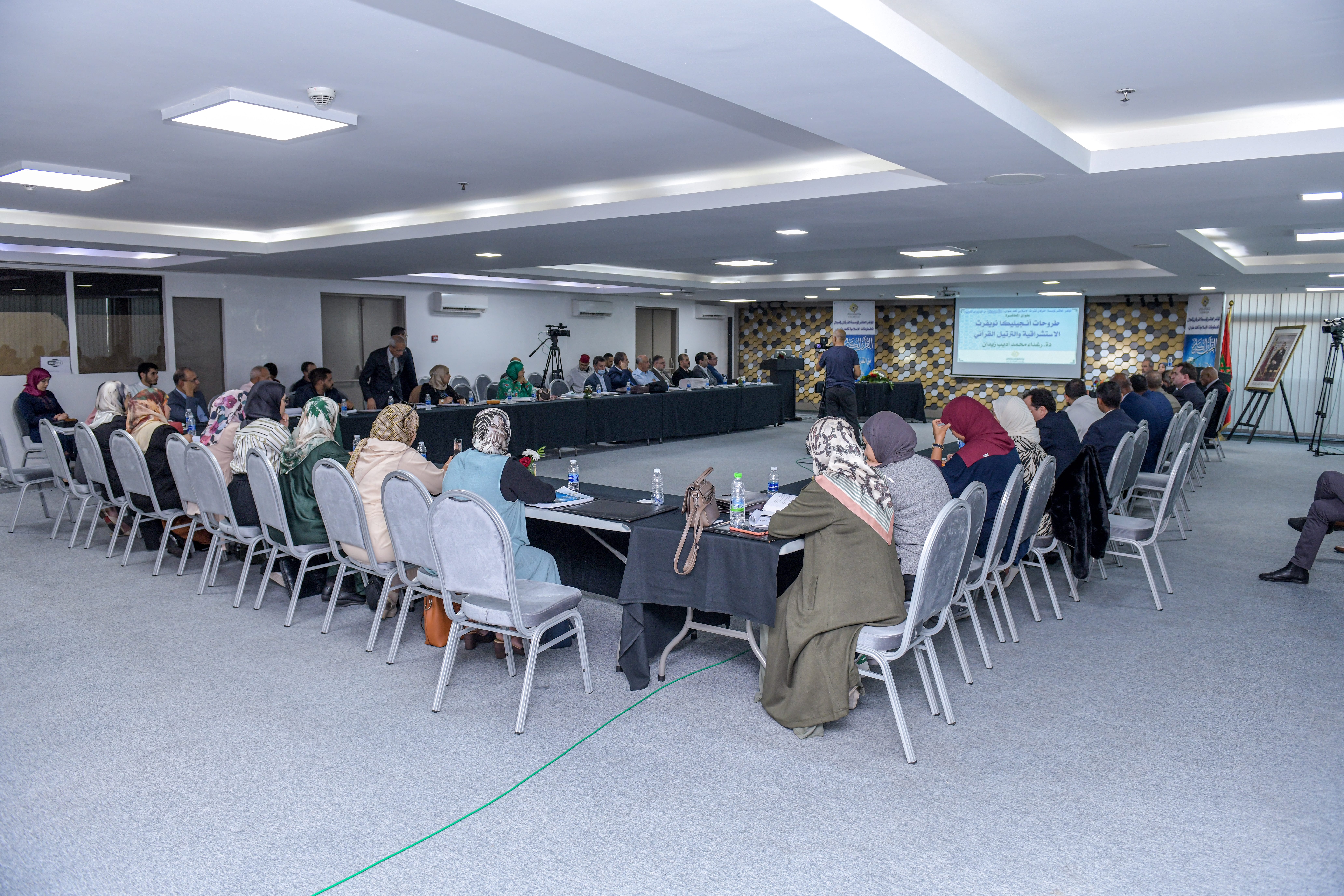
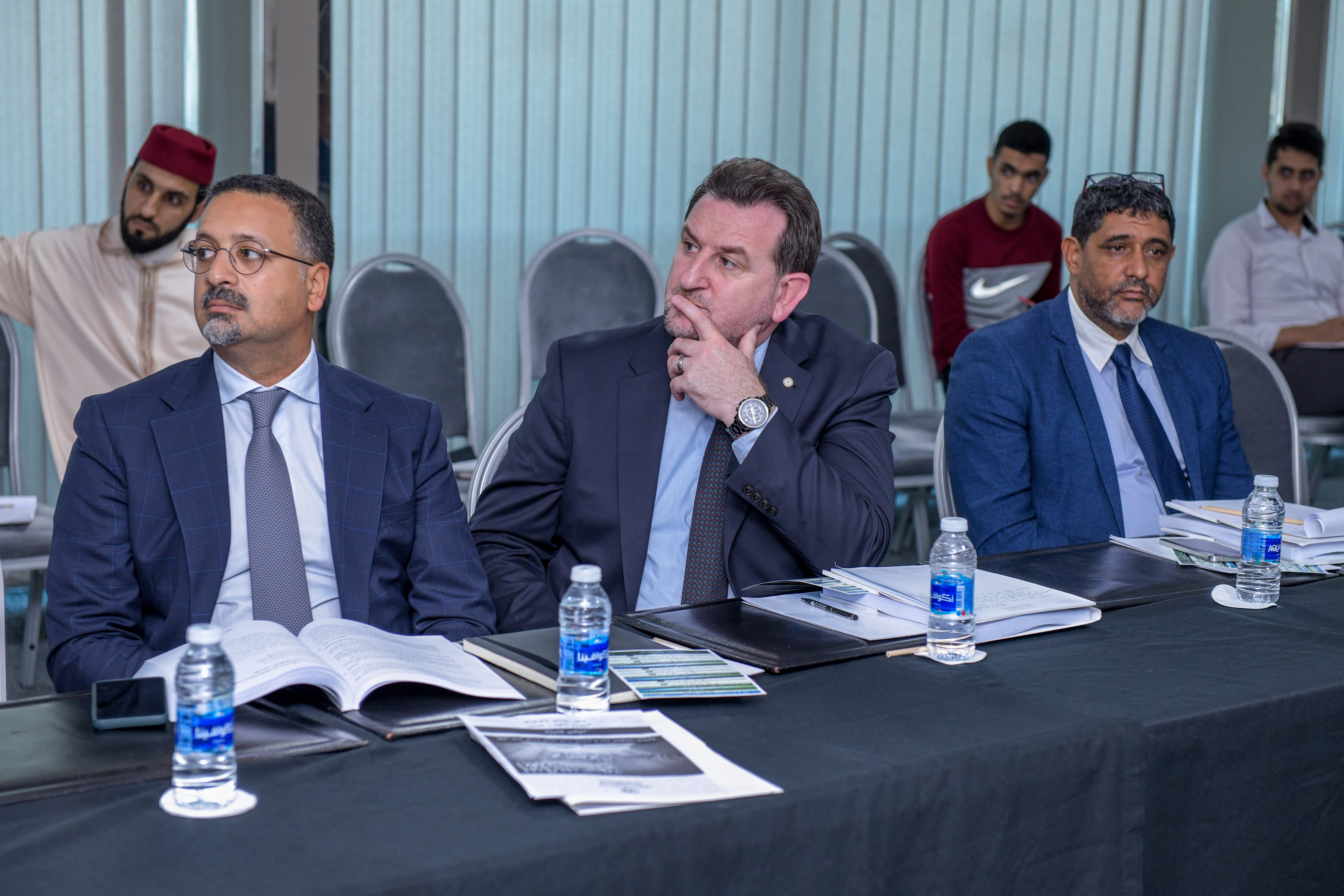
Closing session and recommendations
The closing session was chaired by Dr Mohammed Drioueche, who thanked the participants and attendees, commending their effort in making the conference a success. He also highlighted the importance of the topic, charting its future scientific trajectory. He was followed by Dr Mohamed Aouam, who read out the recommendations graciously contributed by some of the scholars and attendees. The conference closed with recitation of illuminating verses from the Glorious Qur’ān.
